THE HIGH PLACE, PART TWO
The capital question – returning power to Ulundi lights a fire under electoral battle
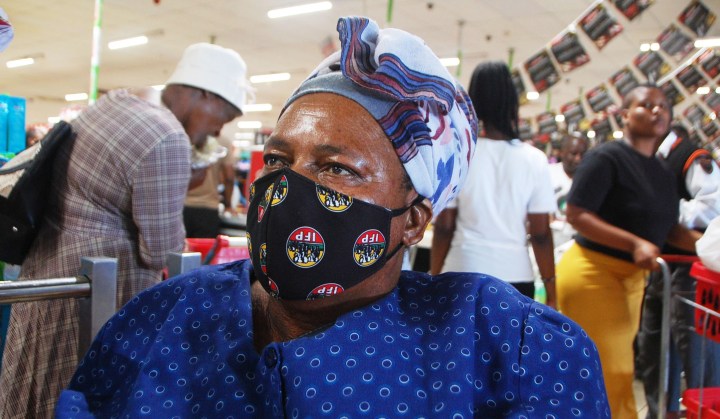
The fate of Ulundi will be determined by the 2024 general elections, depending on which of the two dominant parties – the ANC and the IFP – emerges victorious in KwaZulu-Natal.
The question of moving the KwaZulu-Natal capital back to Ulundi is one of the burning issues in the run-up to the 2024 elections when the IFP and the ANC will battle for power in the province.
The IFP has said that if it wins KwaZulu-Natal at the 2024 polls it will relocate the capital from Pietermaritzburg to Ulundi. Ulundi was the capital of the erstwhile, apartheid-era Bantustan KwaZulu government and the IFP kept things as they were for 10 years after it won KZN in the historic 1994 elections. But when the ANC won it in 2004, one of its first priorities was moving the capital to Pietermaritzburg, where it remains.
Past electoral performances
The Ulundi Local Municipality is a mainly rural municipality on the southern boundary of the Zululand District Municipality in northeastern KwaZulu-Natal.
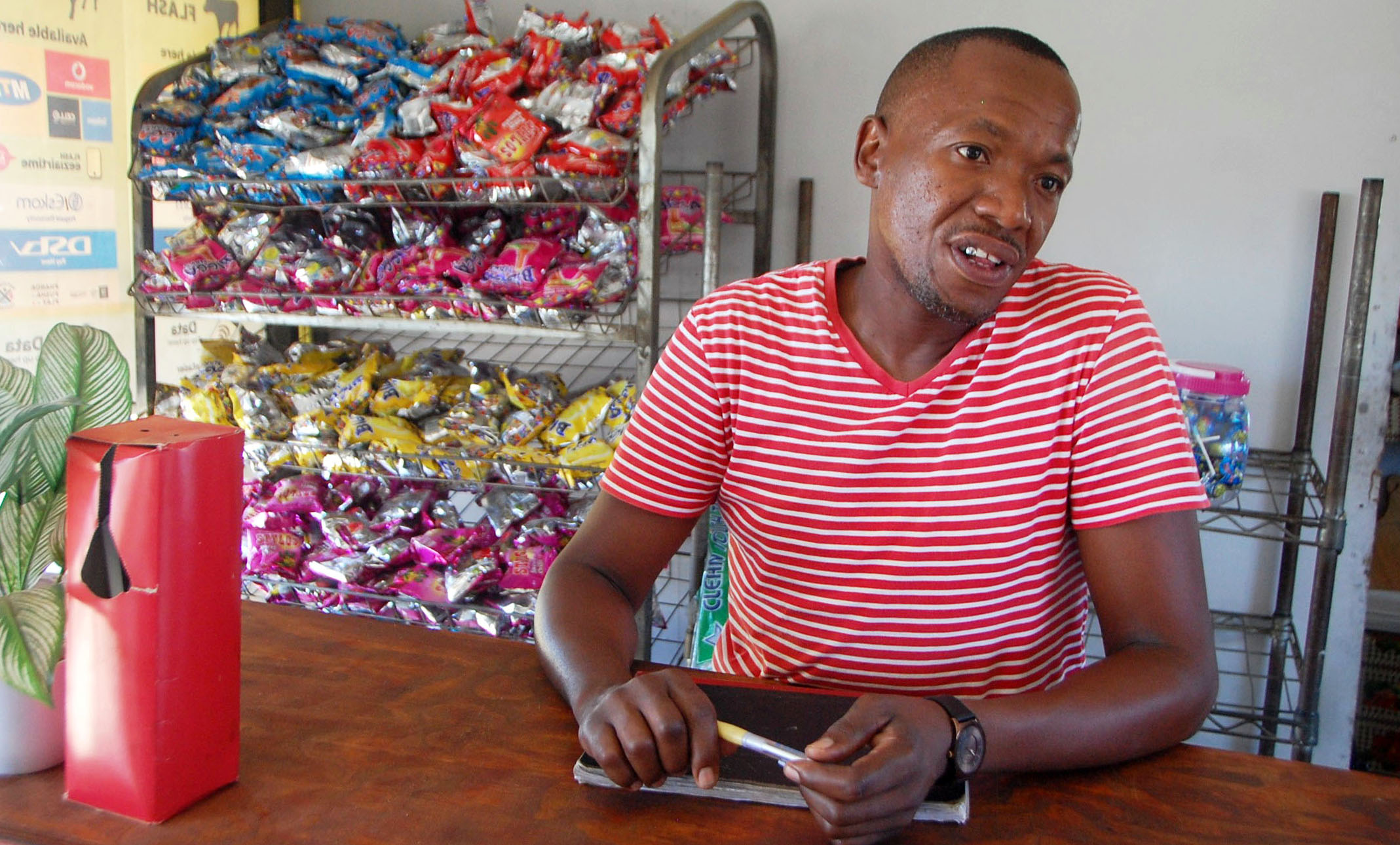
Mnyamezeli Mjekula, who owns a small restaurant in Ulundi, says he needs help with his business. (Photo: Phumlani Thabethe)
Zululand’s poverty rate is higher than the provincial rate of 53.4%. Among its municipalities, eDumbe’s poverty rate is 74.8%, Nongoma’s 72.2%, uPhongolo’s 71.8% and AbaQulusi’s 64.4%, with Ulundi recording the lowest (69.7%). The traditional and rural areas are the most poverty stricken.
The challenges faced by Ulundi’s 30,474 residents include youth unemployment, financial illiteracy and a variety of social ills.
In the 1 November 2021 elections the IFP won a majority of 32 seats on the council to the ANC’s five.
After the formation of the IFP breakaway party, the National Freedom Party (NFP), the IFP lost Ulundi as well as a number of municipalities to a coalition of the ANC and NFP in many parts of KZN.
Then, in 2016 the NFP failed to pay its election registration fee and was disbarred from contesting the poll, and the IFP subsequently won all 24 wards in the municipality.
The ANC’s electoral fortunes are on the decline in Ulundi. After winning six seats in the 2011 local government elections, it raised its tally to 11 seats in 2016, only to fall back to five seats in November 2021.
ANC loss amounts to IFP gains
In the 2019 poll the ANC retained KwaZulu-Natal, albeit with a significantly reduced majority, securing 54.22% of the vote. The party fell just over 10 percentage points from the 64.52% it received in 2014.
The IFP increased its support in the province in the 2019 elections, taking over as the official opposition from the DA. Its support grew from 10.86% in 2014 to 16.34%. The DA also grew slightly, from 12.76% in 2014 to 13.09% in 2019. But the largest growth was recorded by the EFF, from 1.85% in 2014 to 9.71%.
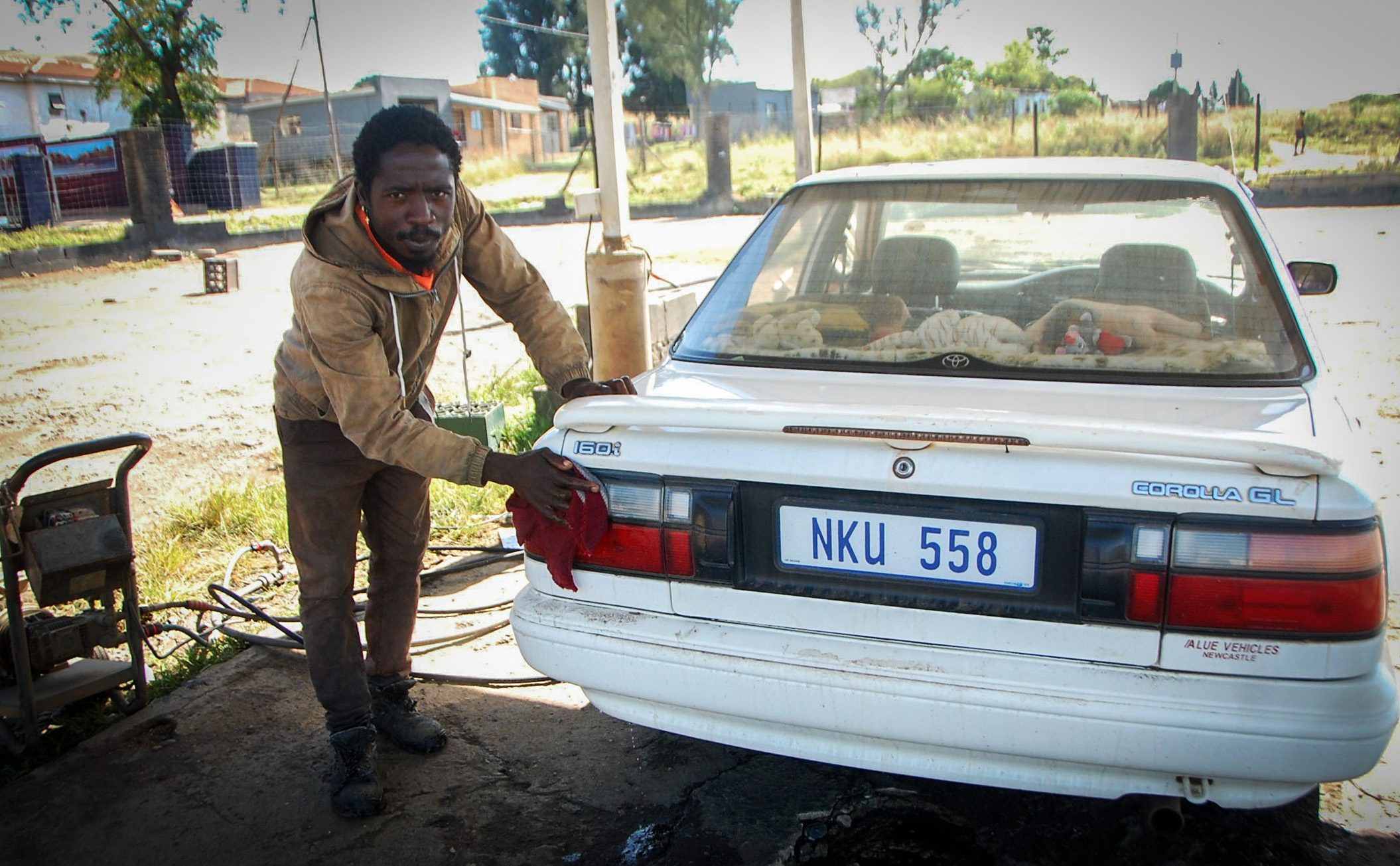
Philani Nene from Mbelani in Ulundi earns money by washing cars. (Photo: Phumlani Thabethe)
The 2021 local government poll had a low voter turnout – only 35% of the 1.9 million eligible voters cast their ballots. The IFP took 24% of the vote in the province, second to the ANC’s 42.74%.
Read Part 1: Ulundi squatters who hijacked state-owned houses 20 years ago given an ultimatum: move out or else
Among its gains, the IFP won back control of the King Cetshwayo, Nquthu, Vryheid, uMzinyathi, uMkhanyakude, uThukela and Zululand districts, taking wards in Nquthu and Vryheid and uThukela district municipalities, continuing to build on its 2019 electoral gains and and reversing the ANC’s 2016 gains in all these municipalities.
Capital or punishment
Wayne Sussman, an independent political and elections analyst, told Daily Maverick: “Ulundi, like Umsinga, is the heartland of IFP support in KwaZulu-Natal. It is where the party has traditionally done the best. If the IFP wants to bring the ANC to below 50% of the vote, it does not only have to ensure that it eats away ANC support in traditional ANC-supporting areas, but it also has to ensure that it brings out its own supporters in huge numbers to vote in areas like Ulundi. That will be key in the 2024 general elections.”
Sussman said even if the IFP – with the help of the opposition – could win KZN, it is not a foregone conclusion that Ulundi will be the capital. “Other opposition parties, like the DA, are not very keen to have the capital in Ulundi instead of Pietermaritzburg.”
IFP KZN president Velenkosini Hlabisa said his party will work with other opposition parties to unseat the ANC in KwaZulu-Natal and once in power it would relocate the legislative and administrative capital to Ulundi from Pietermaritzburg.
Thami Ntuli, the IFP’s provincial chairperson, said Ulundi has a special place in his party.
“There are many things that were built by our leader, Inkosi Mangosuthu Buthelezi, including the legislature and other buildings, whose aim was to bring development to the people. They are still standing even today, although they are not utilised properly.
“Our party is yet to meet and discuss and adopt an election manifesto. But the results of the recent by-elections give us hope that we will win in Ulundi, we will win in Zululand and we will win in KZN, especially if we work with other political parties,” he said.
Inkatha is slowly conditioning the people of Zululand District to live in a world wherein violence is the order of the day.
The ANC’s KZN spokesperson, Mafika Mndebele, said his party is happy with having the legislative and administrative capital in Pietermaritzburg but also wants economic and other development to be unlocked in and around Ulundi.
“After the general elections in 2004, the premier of the province, Sbu Ndebele (first ANC premier in KZN), declared Pietermaritzburg as both legislative and executive capital of the province.
“This declaration resulted in the need for some provincial departments to relocate their head office components to Pietermaritzburg. Currently, KZN government departments are located in various locations in Pietermaritzburg and Durban,” Mndebele said.
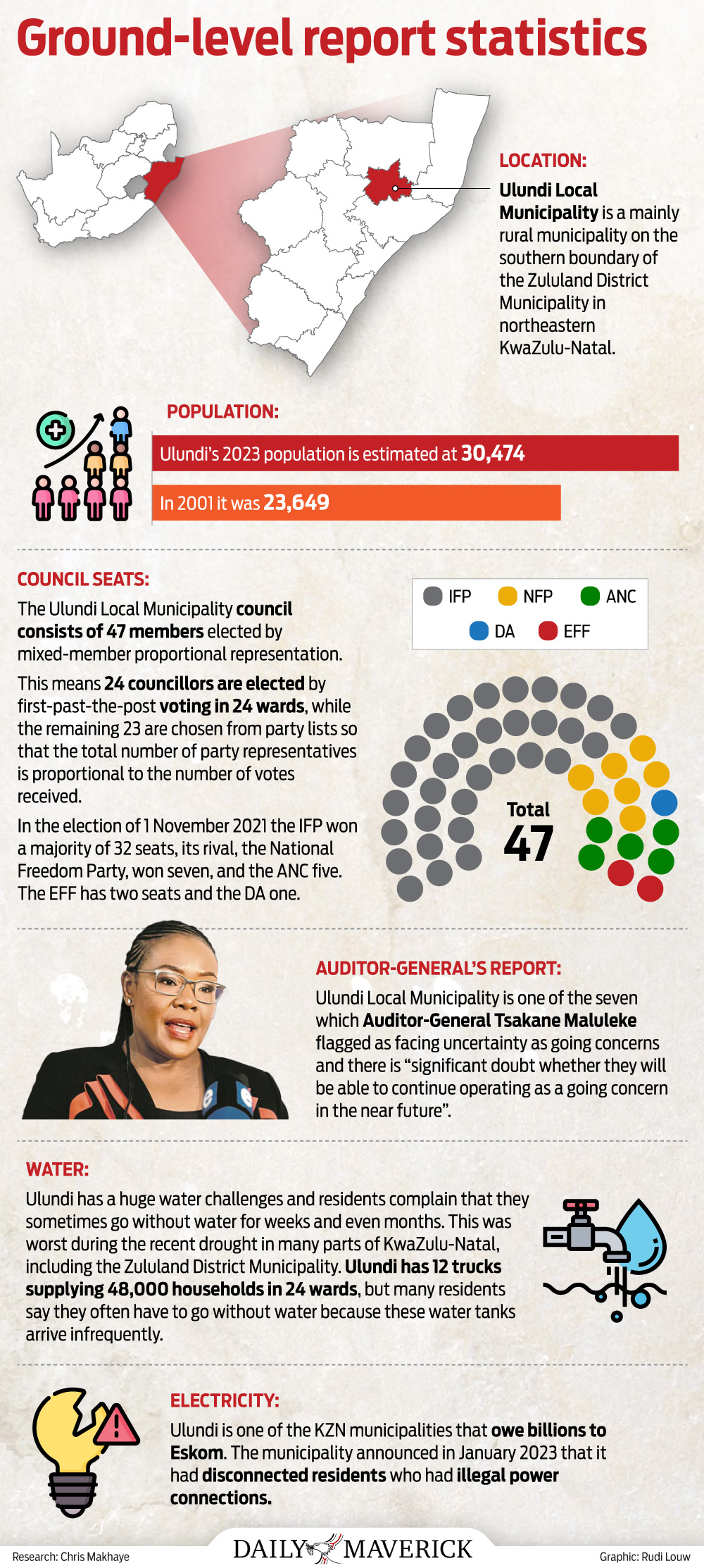
He said the party is putting on a spirited election campaign throughout the province, including Ulundi and the entire Zululand region, but is worried about the violence and intimidation visited upon its supporters and leaders by people associated with the IFP.
“We are happy with our campaign for general elections to be held next year. The days of the IFP in Zululand are numbered. We reiterate our view that Inkatha is slowly conditioning the people of Zululand District to live in a world wherein violence is the order of the day and prevalent in human relations,” Mndebele said.
What the people say
In the town of Ulundi itself, people have differing views on whether it should become the capital again. Many support it, others are indifferent, while others, including young people, say they don’t care, so long as they can get jobs, better schools, houses, hospitals, roads and other amenities through government initiatives and interventions.
Since I passed matric I have never worked. For me, whether Ulundi is a capital or not is not important.
Naturally, local businesses and municipal officials are drooling at the prospect of capital status returning, saying this would bring back the pre-2004 era when the IFP was still in charge of the provincial government and the capital was Ulundi and the fat salaries of the provincial government officials, MPLs, senior civil servants made tills sing.
In a queue for grants at the Ulundi Spar, Daily Maverick spoke to wheelchair-bound Thembi Dlamini (64), who displayed her allegiance wi0th an IFP mask.
She said she didn’t hold a particular view on whether Ulundi should become the capital, but would certainly vote in next year’s election, as she hoped it would bring change.
“We want jobs for our children. We are forced to feed many children with the grant money we get from the government. Food is very expensive and electricity is expensive and comes on and off, putting off and destroying the little food we buy with our grant money,” she said.
Neh Shandu, a 28-year-old who lives in Thokoza informal settlement just outside Ulundi, said life is hard without a job.
“Since I passed matric I have never worked,” she said. “For me, whether Ulundi is a capital or not is not important. As young people we want jobs, we want houses, we want better roads.”
See here a timeline of Ulundi
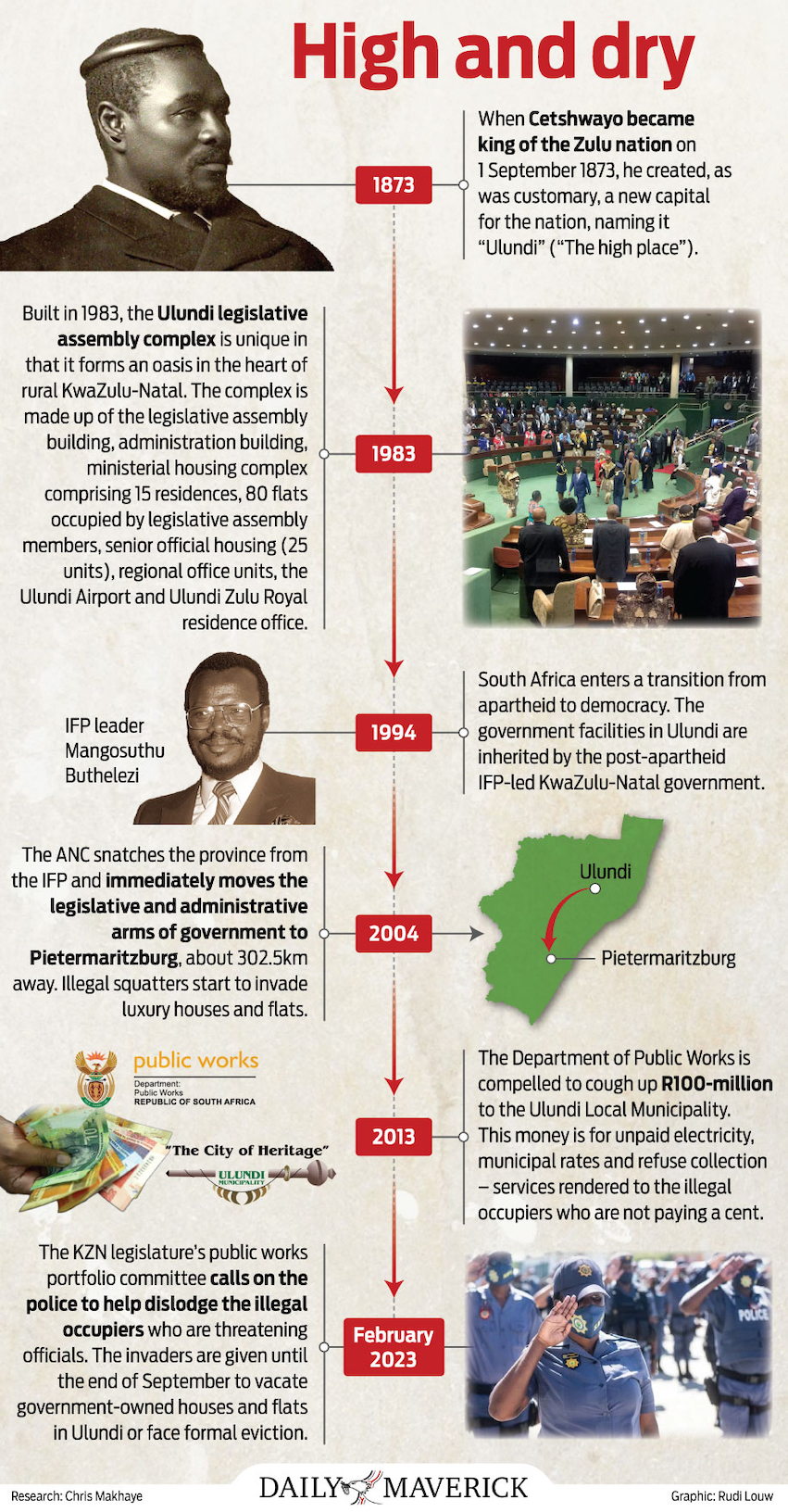
Mnyamezeli Mjekula (35), who runs a restaurant in Mbilane, another settlement just outside town, said making the town a capital again will grow the local economy.
“I was not living here full-time when Ulundi was a capital before. But I saw the impact of the exodus of the capital. Many businesses that relied on the capital had to close down. I remember the car dealer had to close down, as well as some businesses in town.
“For me the most worrisome thing is load shedding. Those of us who are in the food business suffer a lot due to the power cuts. Our wish is to get a government that will bring the load shedding to an end,” he said.
Many Ulundi Section C township residents said they would welcome the return of the capital.
“That would be good. But we also want a government that will take care of our needs. At times we have to stay without water for two months and during that time water tanks come very seldom. It is even worse when we don’t have water and electricity at the same time. DM

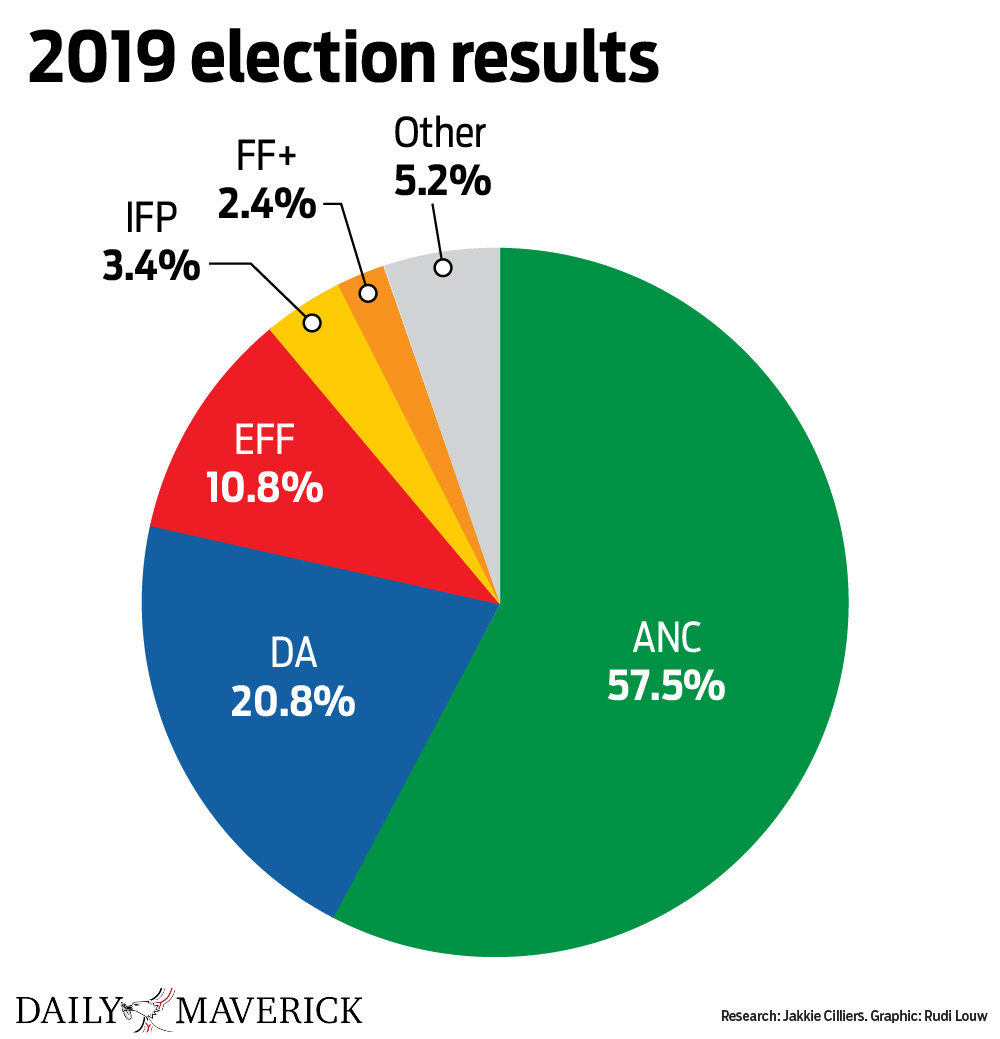


















Comments - Please login in order to comment.